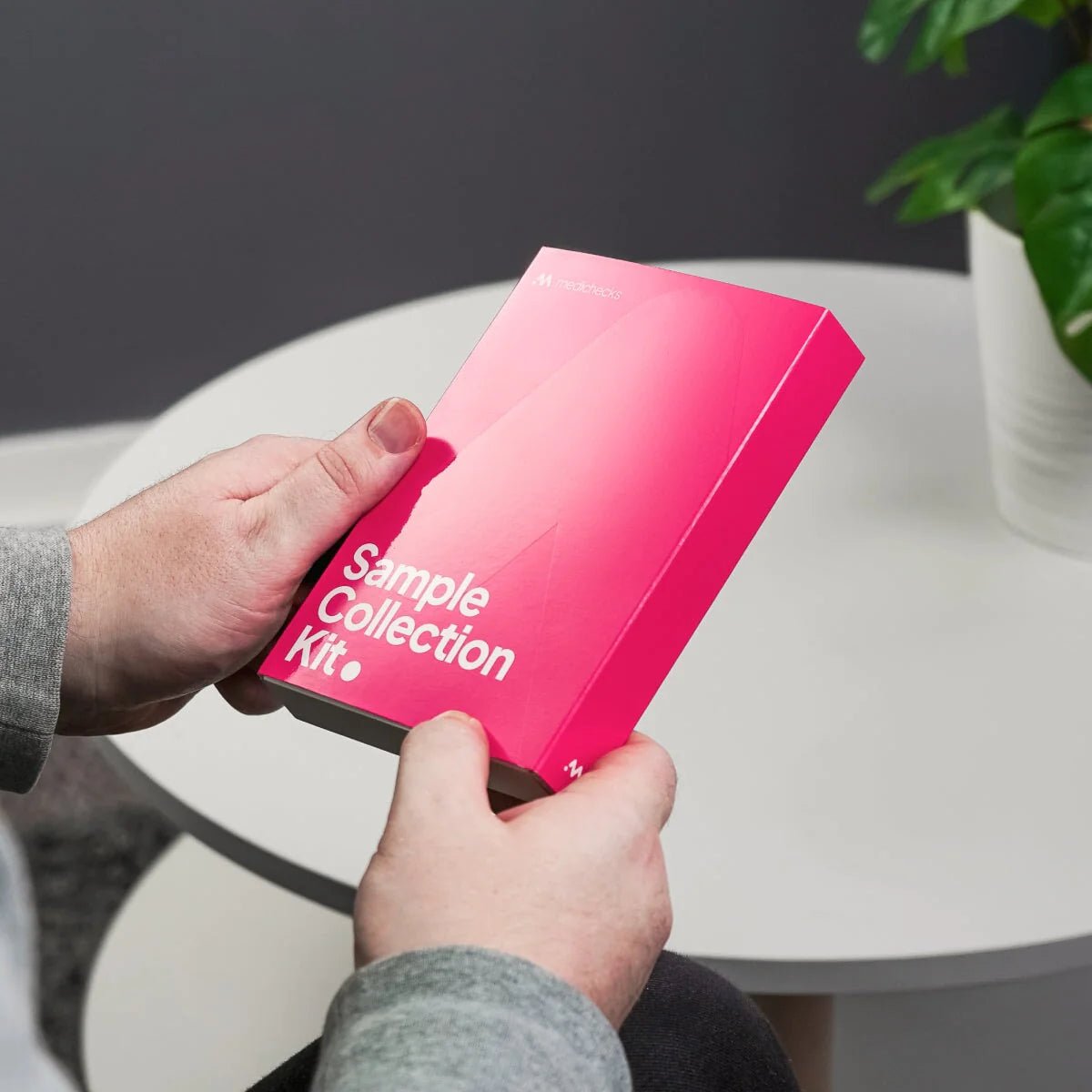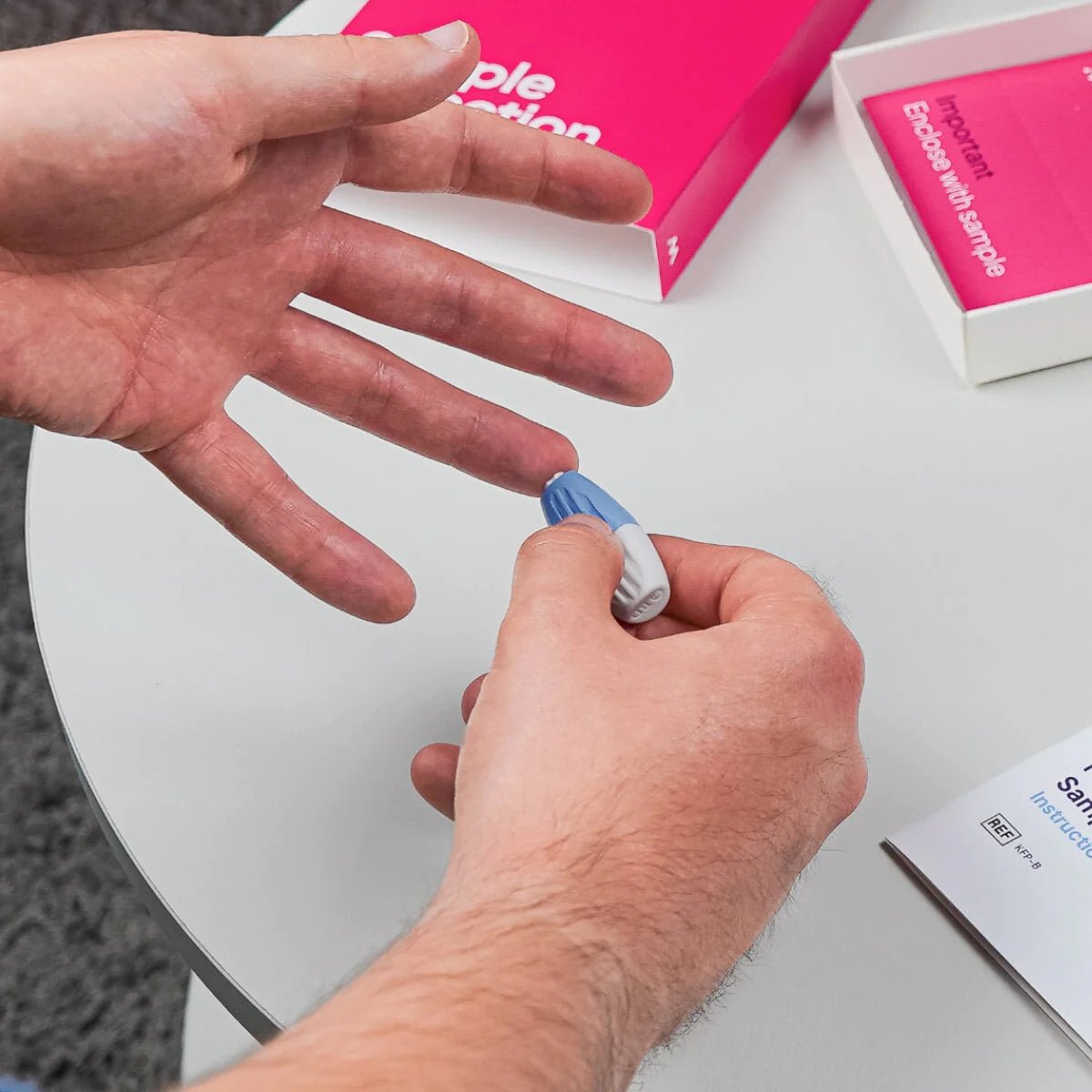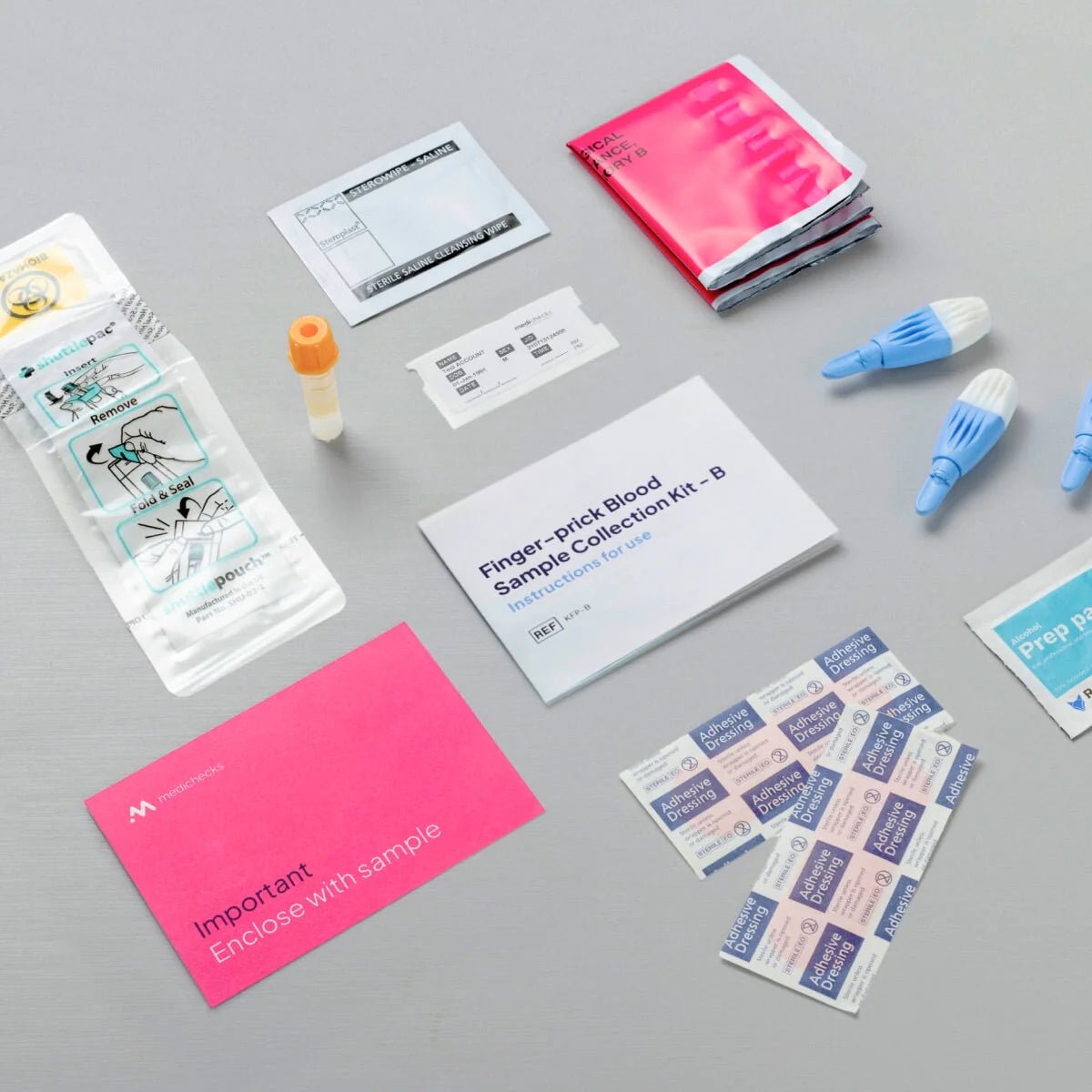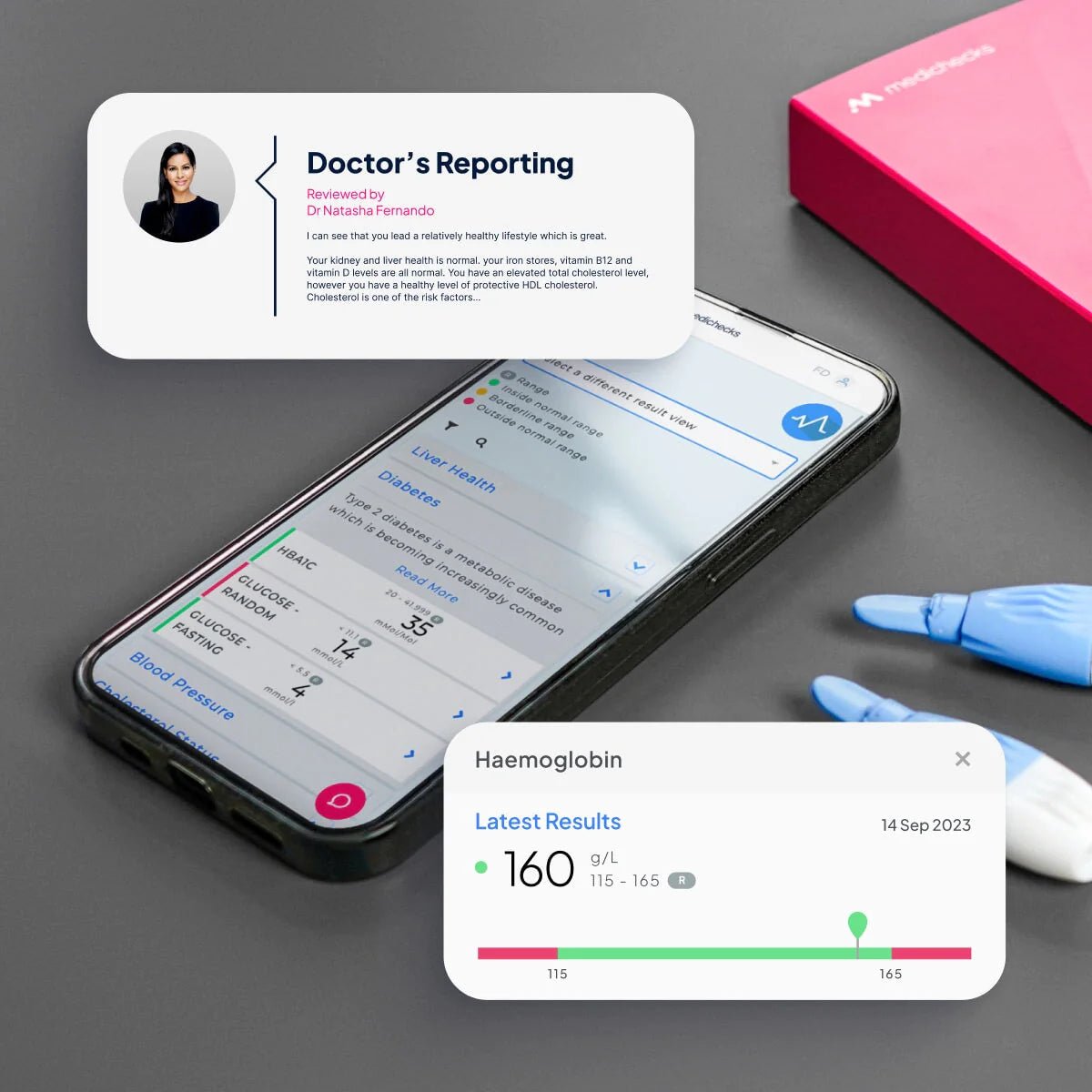Diabetes hba1c Blood Test
Description
Check your risk of diabetes with an HbA1c (glycated haemoglobin) home blood test. This test is a useful first step if you’re experiencing symptoms of type 2 diabetes, such as fatigue or feeling thirsty all the time, or if you’re at increased risk due to factors such as family history, being overweight, or leading a sedentary lifestyle. By checking your average blood glucose (or blood sugar) level over the past 8–12 weeks, an HbA1c blood test can help detect type 2 diabetes or prediabetes. It’s possible to reverse this condition in its early stages, so your results may help you take early action to improve your health and wellbeing.
Is it for you?
Are you at risk of diabetes? This Diabetes Blood Test is a simple finger-prick test used to help diagnose type two diabetes by measuring the amount of sugar that's attached to the haemoglobin in your red blood cells.
You may be at risk of diabetes if you are pregnant, have a family history, lead a sedentary lifestyle, or have a poor diet.
In its early stages, it is possible to reverse pre-diabetes through a healthy diet and lifestyle changes.
Diabetes (HbA1c) Blood Test, from our experts to you.
What is diabetes?
Diabetes is a condition in which blood sugar levels are too high. Our Glycosylated HB (HbA1c) blood test measures the amount of sugar that is attached to the haemoglobin in red blood cells, with results expressed as mmol/mol, which is the standard unit for the UK.
What can I learn from this test?
As red blood cells live in the bloodstream for about three months, our HbA1c test shows the average blood sugar for the past few months. Unlike a regular blood sugar test, our HbA1c test is not affected by short-term changes (e.g. a recent sugary snack). So even though you may have had high blood sugar on occasion, a good HbA1c result can show that you are controlling your blood sugar levels well. If your HbA1c result is high, it could mean you have pre-diabetes or diabetes.
What are the symptoms of diabetes?
Symptoms of diabetes include frequent urination, fatigue, unexpected weight loss, and feeling thirsty all the time. Diabetes can lead to further complications, including heart and kidney problems.</p><p>In its early stages, type 2 diabetes can be reversed through lifestyle changes. </p><p>Diabetes is strongly associated with obesity, poor diet, and a sedentary lifestyle. Losing weight through a calorie-restricted diet has been shown to bring blood sugar back down to normal levels. Our HbA1c diabetes check can help you know whether you need to be acting to improve your risk factors now. To find out more, read our blog: 10 steps to reduce your risk of type 2 diabetes.
What's Included?
Diabetes
HbA1c
Haemoglobin A1c (HbA1c), also known as glycated haemoglobin, is a longer-term measure of glucose levels in your blood than a simple blood glucose test. Glucose attaches itself to the haemoglobin in your red blood cells, and as your cells live for around 12-16 weeks, it gives us a good indication of the average level of sugar in your blood over a 3-month period.
A raised HbA1c result points to diabetes or an increased risk of developing diabetes, which can have a significant impact on your lifespan and quality of life. Complications of uncontrolled diabetes include heart disease, kidney disease, eye problems, and vascular conditions. It can also contribute to mental health problems. And men with diabetes are three times more likely to have erectile dysfunction. Keeping your HbA1c within a normal range can help you reduce the risk of these conditions.
FAQ
Can A Routine Blood Test Detect Diabetes?
If you believe you are at risk of developing diabetes, you can test your blood sugar levels with our simple finger-prick, Diabetes (HbA1C) Blood Test. It measures the amount of sugar that is attached to the haemoglobin in red blood cells and comes with results and next steps from a qualified doctor. A formal diagnosis must be confirmed through a medical consultation. Find out how you can reduce your risk of type 2 diabetes.
Is Fasting Required For A Diabetes Blood Test?
You do not need to fast for an HbA1C blood test, which identifies blood sugar levels over the previous 8-10 weeks. However, you would need to fast for the fasting plasma glucose (FPG) test, which measures blood sugar after you’ve fasted for 8 hours. Learn more about how diabetes is diagnosed and treated.
When Should I Do A Diabetes Blood Test?
You may want to do a diabetes blood test if you have a family member with type 2 diabetes or if you have any type 2 diabetes symptoms, like:
- Tiredness
- Increased hunger, thirst, or urination
- Blurry vision
- Sores that are slow to heal
- Recurrent infections
What Can A Diabetes Blood Test Result Show?
Diabetes blood test results could show if your blood glucose level is too high or if it is within the normal range. Your doctor can use the test results to help diagnose diabetes and pre-diabetes. Pre-diabetes describes the transition between not having diabetes and having it. If you detect it early, you can reverse pre-diabetes through lifestyle changes.
BE MORE JELLYFISH
The science of Longevity is growing at breakneck speed and tens of BILLIONS of dollars are being invested in solutions to help us all slow aging. But until 'Longevity Escape Velocity' has been achieved, we should all be more like Turritopsis Dohrnii jellyfish - which do not age - and we should invest in our long-term health with a healthy lifestyle, supported by longevity supplements.
Worldwide
Guarantee
Payment
Policy






